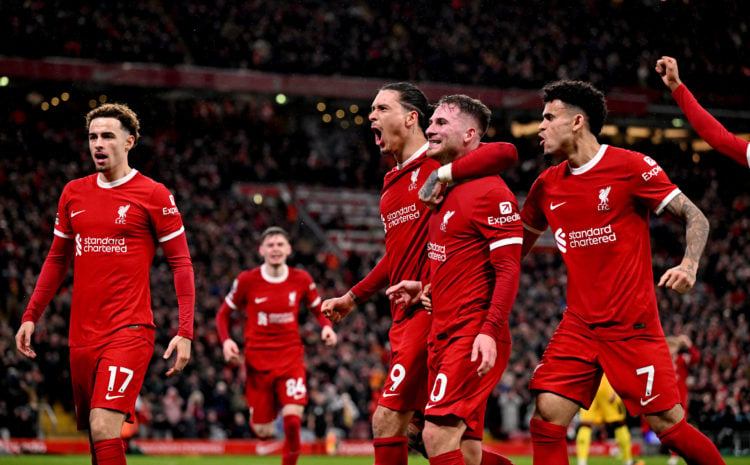Liverpool just about squeezed through against Sheffield United at Anfield last night.
In the end, the Reds’ two goal winning margin makes it look like it was a relatively comfortable evening for them. The truth is that it was anything but.
Until Jurgen Klopp turned to his substitutes bench with half an hour left, it had felt as though a damaging result was on the way for the Reds.
They were stodgy and uninventive in possession for large parts and couldn’t really get in behind a deep United defence. Thankfully, a little switch in formation from Klopp opened things up more and the pressure eventually told.
Despite Liverpool not really passing the eye test though, it turns out that they actually broke a Premier League record last night. And it’s a not insignificant one either.
What record did Liverpool break
This was always likely to be a one-sided game in Liverpool’s favour. As they fight for the title, Sheffield United look guaranteed to lose their own battle against relegation.
And according to a TNT Sports post on X last night, it was, on paper, the most unevenly matched game in Premier League history.
Liverpool reportedly had 83.1% ball possession against the Blades, which is the most by any team in the competition’s 32-year run. Wow
With Alexis Mac Allister pulling the strings at the base of midfield and Dominik Szoboszlai also seeing plenty of the ball, Liverpool are bound to dominate matches. But this is something else.
Bearing this in mind, you really have to say fair play to Sheffield United for keeping the score at two.
Liverpool playing keep-ball
In our opinion, this is exactly why you can’t totally lean on statistics to understand the story of a game.
Yes, Liverpool had a lot of the ball. You could feel that watching. Sheffield United simply couldn’t get out in the first-half especially. The Reds just kept on coming at them.
Nevertheless, playing in a compact shape, Liverpool’s possession didn’t threaten the Blades all that much. Essentially, they were more than happy to let their hosts have the ball.
In the end, that pressure was always going to tell, especially when Liverpool turned to their bench. But you wouldn’t have said that the Reds’ copious amounts of possession helped them play any better, for example. Still, an interesting stat.
